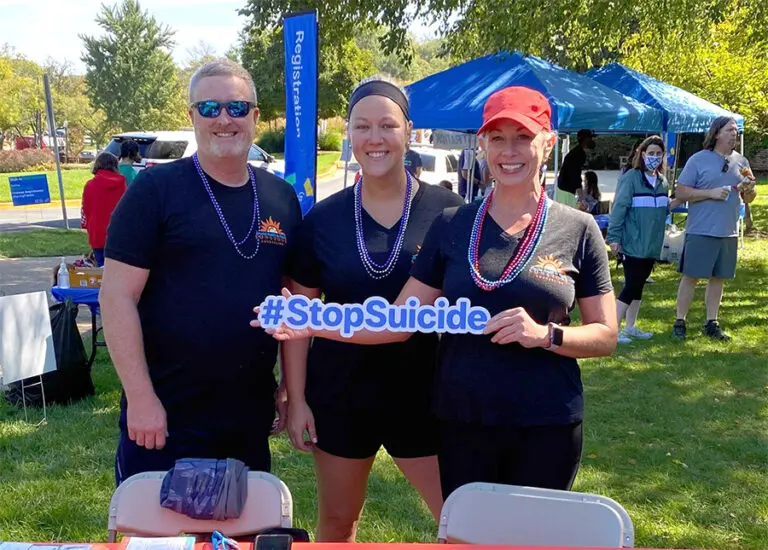By Sunstone Counseling, in collaboration with Laken Thomas, Resident in Counseling
For many people, the thought of someone they love ending their life is unthinkable, and as a result, people can feel uncomfortable talking about suicide.
The stigma around mental health challenges, and suicide in particular, contributes to the neglect of discussing this important topic. But given that suicide was among the top nine leading causes of death in 2020 in the U.S., it’s critical that we talk openly about it to help those impacted by suicide, and to prevent future incidents.
15 Signs Someone May Have Suicidal Thoughts
Since everyone processes emotions and situations differently, the ways in which suicidal thoughts show up in a person can vary greatly. Being able to spot some of the ways that suicidal thoughts present themselves is the first step in prevention and getting a loved one the help they need.
Here are just a few signs that a person may be struggling with suicidal thoughts.
- Increased use of alcohol or drugs
- Talking about wanting to die
- Talking as if others would be better off without them
- A sudden withdrawal from social situations
- Trying to give away their possessions
- Displaying extreme mood swings
- Pushing themselves in self-destructive ways
- Talking about being a burden to others
- Indicating that they don’t know how much longer they can go on
- Behaving recklessly
- An increase in practicing self-harm
- Expressing how much they want to stop suffering
- Experiencing distress from reliving trauma
- Trouble envisioning a future they want to live in
- Expressing extreme loneliness and isolation
We Can Help Prevent Suicide
There are many ways we all can help prevent suicide and support those who may be experiencing suicidal thoughts. Understanding that suicidal thoughts and actions need to be taken seriously and require an immediate response is essential.
As parents, guardians, or caregivers, teaching children what to do when their friends talk about suicide, self-harm, or feeling hopeless is one of the biggest thing we can do to help. Allowing the space to have frank and non-judgmental conversations around these topics will help to destigmatize these situations and show children how to recognize distress among their friends.
It is also important to teach our children how to stand up against bullying or other ways in which children become isolated within peer groups. It’s important to teach our children which adults are there to provide support in these situations, such as school counselors or other mental health professionals. Giving our children the tools to handle difficult situations and the space to share the emotions they have around this topic is crucial for suicide prevention.
As peers and friends, we can learn the signs of suicidal thoughts, which include the signs listed above. When you begin to notice a change in someone’s personality, having direct and non-judgmental conversations with them shows that you care and are there for them no matter what.
Supporting a loved one in the search for a mental health professional is another helpful step in preventing suicide. Showing someone that you are there for them helps alleviate the feelings of loneliness and isolation that often come with suicidal thoughts.
Walking Alongside Those in Need
At Sunstone, we’re committed to spreading understanding and awareness about suicide and are working to end the surrounding stigma. We participate annually in the American Foundation for Suicide Prevention’s Out of the Darkness Walks which raise awareness and funds around suicide.
This year, we’re sponsoring walks in Loudoun County, Fairfax, and Richmond as journeys of remembrance, hope, and support, and to acknowledge the ways in which suicide and mental health conditions have affected our lives and the lives of those we love and care about.
As a counseling practice dedicated to ongoing professional learning, our therapists work under supervision, consult with peers, and participate in trainings on the topics of self-harm and suicide. Increased levels of training in recognizing signs of suicidal thoughts and how to talk to someone who is considering suicide, makes mental health professionals more effective in preventing suicide.
Additionally, we leverage our role to advocate for more suicide training, education, and supportive services within schools, workplaces, and the communities we live in. The more we can destigmatize this topic and provide a network of support for individuals considering suicide, the more suicides we can prevent.
If you or someone you love is struggling with suicidal thoughts or actions, please reach out to a mental health professional or contact the National Suicide Prevention Lifeline (text or call 988).






